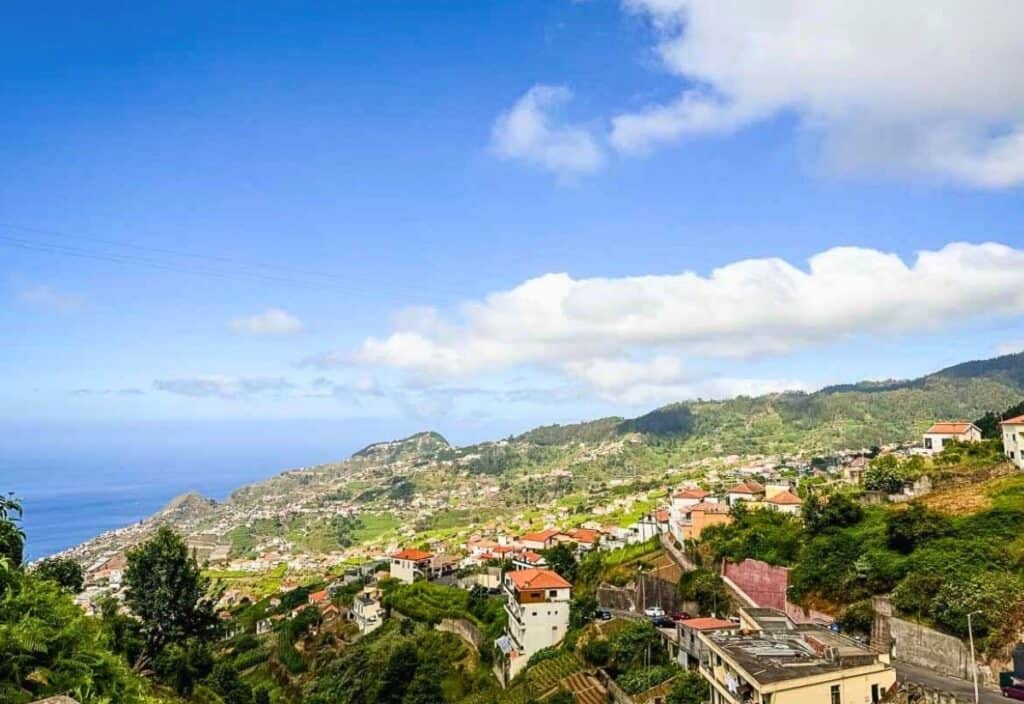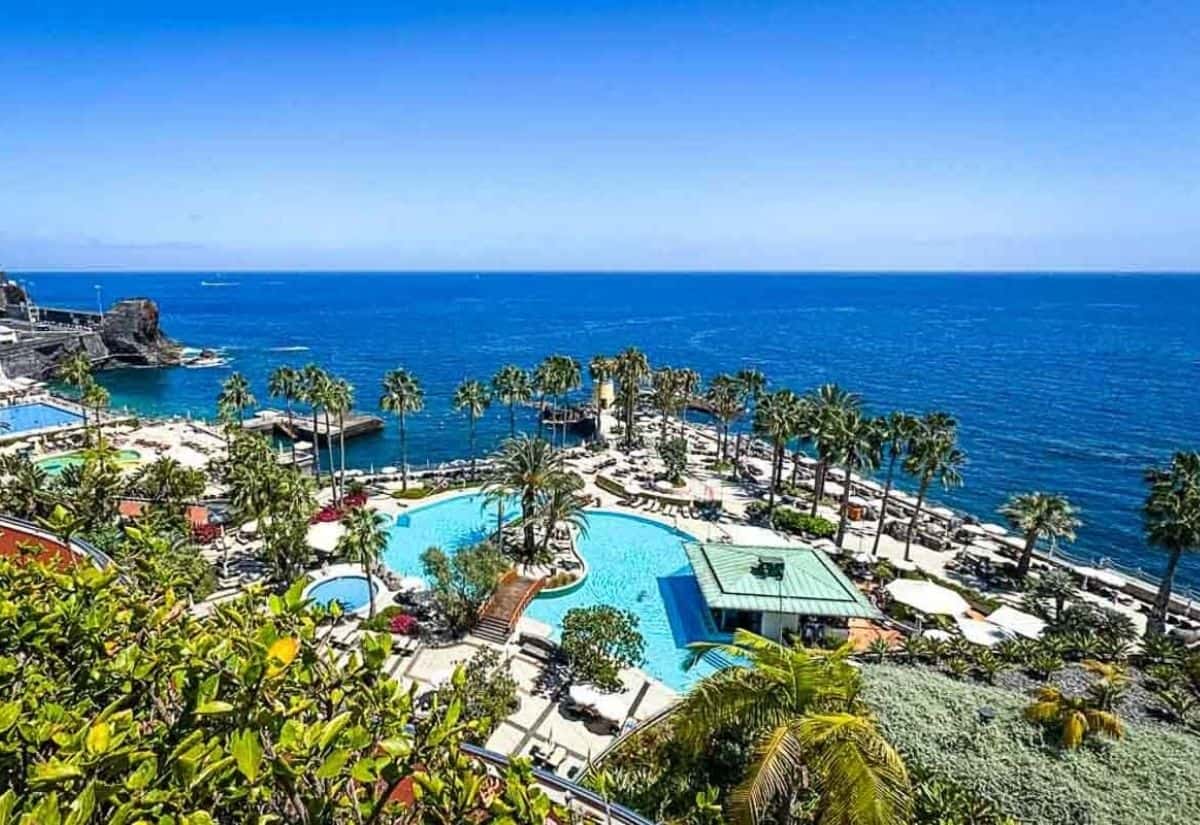Cristiano Ronaldo and Real Madrid put Madeira on the global map
For centuries, sailors and wine merchants knew Madeira as a remote stop between Europe and the New World. Its steep green cliffs, laurel forests and terraced farms shaped the lives of those who lived close to the sea but far from global attention. Then a boy from Funchal laced up his first pair of cleats, and everything changed.

Cristiano Ronaldo’s journey from a modest island childhood to football superstardom turned Madeira, an island in the Portuguese archipelago, into more than a dot on a map. When he sprinted down the field for Real Madrid, millions watched not only an athlete but the pride of a small Atlantic island. Today, flights land daily with visitors eager to see where it all began, tracing the path from the CR7 Museum to the beachside neighborhoods that shaped one of the world’s greatest soccer players.
A brief history of Madeira before the spotlight
Long before Cristiano Ronaldo carried its name across stadiums and screens, Madeira was writing a different kind of story. The island’s recorded history began in the early 15th century, when Portuguese explorers João Gonçalves Zarco and Tristão Vaz Teixeira landed on its forested shores around 1420. The Portuguese Crown placed Madeira under its administration in 1425 and sent noble families, farmers and even former prisoners to cultivate the rugged terrain.
The island’s name, “Ilha da Madeira,” means island of wood. Early settlers cleared the dense laurel forests and built a network of levadas, narrow irrigation channels that still lace the mountains today. At first, wheat sustained the colony, but sugarcane soon transformed Madeira’s fortunes. The island’s position in Atlantic trade routes made it a magnet for merchants from Italy, Flanders and Spain, and by the 16th century, Funchal had become one of Europe’s wealthiest ports.
When sugar production later shifted to the Caribbean, Madeira found new fame in its fortified wine, intricate embroidery and seafaring tradition. For centuries, it remained a far-flung province, admired but often overlooked. It was a place of natural beauty, warm hospitality and quiet resilience, waiting for its next chapter. That chapter would begin with a boy born in Funchal in 1985, whose rise would take Madeira from a remote outpost to global recognition.
The rise of Cristiano Ronaldo
Cristiano Ronaldo dos Santos Aveiro was born in 1985 in Funchal, Madeira’s capital, in a modest neighborhood where the Atlantic breeze swept through narrow streets and soccer meant more than a pastime. Soccer was an escape for young Cristiano. The youngest of four children, he spent his early years kicking makeshift balls through the alleys near his family’s home.
At just 12, Ronaldo left Madeira for Lisbon to join Sporting CP’s academy, a leap that would shape both his career and his connection to home. His speed, discipline and relentless ambition caught international attention almost immediately. By 2003, he signed with Manchester United, where his talent matured under Sir Alex Ferguson and his name became synonymous with precision, power and flair.
It was at Real Madrid where Ronaldo’s story, and Madeira’s, shifted from remarkable to legendary. During nine seasons with the Spanish powerhouse, he broke nearly every record imaginable: four Champions League titles, four Ballons d’Or and more than 450 goals. Real Madrid was not just a club; it was a global stage that broadcast his every triumph to millions of fans around the world.
For Madeira, each victory meant something more. Every goal and every highlight reel carried the island’s name into conversations, headlines and searches. Reporters tracing Ronaldo’s roots described the place he came from, an island of cliffs, sun and humble beginnings. His success turned Madeira into a curiosity, a place people suddenly wanted to know, see and experience for themselves.
Real Madrid and the power of global recognition
When Ronaldo joined Real Madrid in 2009, he entered not just a new club but a global stage that reached every corner of the world. Madrid’s white jerseys were more than symbols of sport; they functioned as international currency in football culture. Broadcasts in more than 180 countries, billions of social media impressions and a fan base that spanned continents gave Ronaldo a megaphone few athletes have ever held.
With every goal, Madeira gained a mention. Commentators called him “the boy from the island,” and millions of fans searched for where that island was. Travel articles soon followed, showcasing Funchal’s oceanfront promenades, volcanic peaks and vibrant markets. The connection between Real Madrid’s global dominance and Ronaldo’s personal origin story made Madeira part of football’s geography.
By the time he left Madrid in 2018, Madeira was synonymous with excellence and ambition. It has also been named World’s Leading Island Destination for several years.
From island roots to global legacy
Today, Madeira isn’t just Ronaldo’s birthplace; it’s proof of how far pride and persistence can travel. The island’s story continues through an athlete who turned success into cultural capital. His trophies may live behind glass at the CR7 Museum, but his real legacy endures in hotel lobbies, souvenir jerseys and the faces of travelers stepping off planes in Funchal.
Ronaldo did not invent Madeira’s beauty or its warmth. He amplified it. He reminded the world that greatness can rise from volcanic soil and narrow streets, and that fame can give something back. Madeira was once a waypoint between continents. Now, thanks in part to its most famous son, it is a destination with its own gravitational pull.
Zuzana Paar, a co-founder of Food Drink Life, is a seasoned traveler and writer who has explored 62 countries and lived in St. Lucia, Dubai, Vienna, Doha and Slovakia. Her work has been featured on Fox News, New York Daily News, MSN and more; she has also appeared live on Chicago’s WGN Bob Sirott Radio Show. When she’s not discovering new destinations, she shares travel tips and insider insights to help others experience the world in a unique and unforgettable way.


